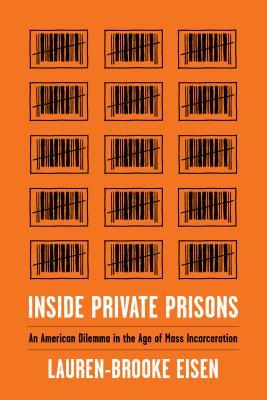Making Sense of the Alt-Right
by George Hawley
Published: September 2017
Making Sense of the Alt-Right offers a quick primer on the relatively new extremist offshoot of American conservatism.
The Alternative Right's primary focus is aggressive, irreverent white-identitarian politics, but as it gains traction has also begun to capture a jumbled web of disgruntled conservatives seeking an outlet from the mainstream.
Hawley details the ideological foundations (racial realism, paleoconservatism, radical libretarianism) as well as the projections for the future of the movement in Trump's America. Because there is no centralized leader, the messages and strategies that "go viral" are the ones that are perpetuated, giving the movement a haphazard, disjointed quality.
4.5 out of 5 stars: Somehow despite being one of the biggest buzzwords of the 2016 election and following year, I didn't know much more about this trend than the fact that it existed and it's lifeblood was extremist hate speech. Turns out, news coverage of the group was only hyperbolic in insinuating the group was organized and cohesive (so don't worry, all of the horrible racist, misogynist, shocking language you've heard spewed really are quite accurate). Well-researched and very thorough read - I will definitely be checking out Hawley's other books in the hopes to shed some light on other factions within our political spectrum. Alt-left anyone?
// I received this book free from NetGalley in exchange for an honest review.
Friday, November 24, 2017
Making Sense of the Alt-Right
Labels:
ARC,
book review,
first race war huh,
netgalley,
nonfiction,
politics,
reading is fun
Tuesday, November 14, 2017
Inside Private Prisons
Inside Private Prisons: An American Dilemma in the Age of Mass Incarceration
by Lauren-Brooke Eisen
Published: November 2017
First and foremost, Inside Private Prisons is an investigation of the benefits and downsides of privatizing the American prison system. But of course, everything is more complicated than it seems. A journey through the history of privatization goes on to explore our sordid past (and present) of prisoners as commodities, how activists use prison divestment as a tool, and the extent to which immigrant detention centers fit into the prison industrial complex. Overarching the span of the book, readers are encouraged to reflect on the nature of the carceral state: how did we get to this age of mass incarceration? How will our current political landscape shape the future?
3.5 out of 5 stars: This book was well-researched almost to a fault - just bursting at the seams with information. The overarching structure of the book sets a solid foundation for discussion, but I felt within each chapter the narrative tends to diverge wildly, leaving some anecdotes and facts a bit scattered and out of place. On the one hand, I want to casually recommend this to anyone with zero background knowledge of the United States prison system (like me!) because it such a strong collection of data and eye-opening realities*. But if I'm completely honest it was a bit of a struggle for me to get through, probably better suited as a required reading text in a college course.
* Did you know small prison towns get to headcount prisoners in the census? So even though prisoners can't vote, they brings more political weight to the region AND bring down the mean income level qualifying the town for federal aid. What a fun new way to gerrymander over-representation for rural america!
// I received this book free from NetGalley in exchange for an honest review.
by Lauren-Brooke Eisen
Published: November 2017
First and foremost, Inside Private Prisons is an investigation of the benefits and downsides of privatizing the American prison system. But of course, everything is more complicated than it seems. A journey through the history of privatization goes on to explore our sordid past (and present) of prisoners as commodities, how activists use prison divestment as a tool, and the extent to which immigrant detention centers fit into the prison industrial complex. Overarching the span of the book, readers are encouraged to reflect on the nature of the carceral state: how did we get to this age of mass incarceration? How will our current political landscape shape the future?
3.5 out of 5 stars: This book was well-researched almost to a fault - just bursting at the seams with information. The overarching structure of the book sets a solid foundation for discussion, but I felt within each chapter the narrative tends to diverge wildly, leaving some anecdotes and facts a bit scattered and out of place. On the one hand, I want to casually recommend this to anyone with zero background knowledge of the United States prison system (like me!) because it such a strong collection of data and eye-opening realities*. But if I'm completely honest it was a bit of a struggle for me to get through, probably better suited as a required reading text in a college course.
* Did you know small prison towns get to headcount prisoners in the census? So even though prisoners can't vote, they brings more political weight to the region AND bring down the mean income level qualifying the town for federal aid. What a fun new way to gerrymander over-representation for rural america!
// I received this book free from NetGalley in exchange for an honest review.
Labels:
ARC,
book review,
netgalley,
nonfiction,
politics,
reading is fun
Sunday, November 5, 2017
History Earned: Saint Arnold reppin' Astros gear
Houston Astros 2017 World Series Champions!!!
Just felt like the world needed a Saint Arnold Brewing Company / Houston Astros mashup and drawing it up was a perfect way to avoid cleaning my apartment! Recommended pairing: Paul Wall's "World Series Grillz" on eternal repeat. Still riding that Game 7 high!
Subscribe to:
Comments (Atom)









